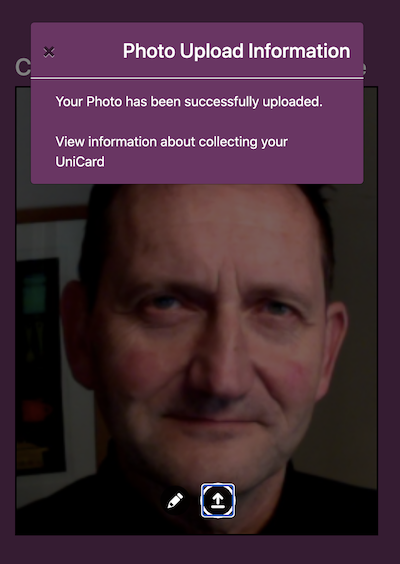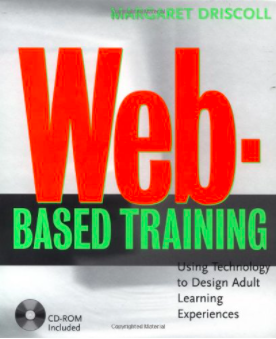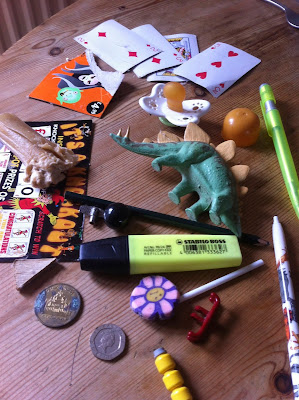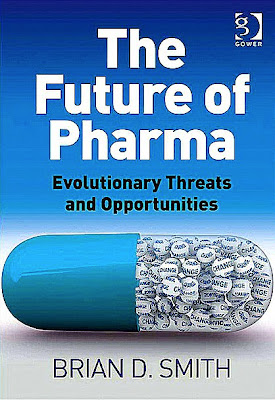The podcast H808 e-learning SMEs.
(Makes them sound like a prog rock band of the 1960s. Perhaps they were?)
[V. Long version here. 4,000 words +. 1,000 or under in H808 Tutor Forum.
Edited versions in the next 24 hours/couple of days in EduBlogs at www.mindbursts.edublogs.org]
Week One
I may be a professional swimming coach (amongst several things), but my head coach told me ‘I think too much.’ Think less and get the athletes to do more. Keep it simple. If there is any context however where thinking is the currency, literally if we are talking professionalism, then the more I think the more professional I become.
(Or not).
Many would say that a 3,000 word blog entry is 'unprofessional.'
I call it shared reflection, the 'uncut version.' It is the outcome of over five hours thinking on the topic. Hours banked. Ideas turned into cash. By definition when I have made two years worth of regular deposits I may call myself and even be defined as an 'e-learning professional' with the MA to suggest I have joined that club, and a job that for the remuneration I receive makes me a professional rather than a wishful thinking wannabe.
It is unprofessional as a post-graduate student to be flippant and/or verbose.
A professional would keep this down to 500 words, yet I am stretching it to 3,000. The uncut version. Reflection in action. My mind at work. Not the athlete sharing a few ‘mots justes’ after a successful race, but the race itself and all the training before hand. The choice words, bullet point form only with an abridged commentary goes into my Tutor Group Forum. Under 250 words there, is my targert. Under 1,000 words per OU blog had been my thinking too. Blown that then.
Watching the TV I fall asleep.
Listening to the radio (i.e. any audio) I do something else - I’d be distracted anyway, I have to.
In an effort to get into my head the points being made by OUr E-learning Subject Matter Experts (SMEs) I first read the transcripts provided and then listened to the podcast while reading the text.
What shocked me was how much I had missed.
I do less than skim read it appears, all I must do is to look at patterns and shapes. No wonder I learn so little when I do nothing more than read.
Lesson learnt?
This isn’t an 'airport thriller' I can read at break-neck speed chaisng the protagonist as he is in turn chased; this requires a different kind of reading.
It requires effort.
I must work with the text, make notes. Just highlighting choices words and sentences isn’t enough either. Effort I can do. It is consistent effort unless I am working under exam conditions where I struggle. There is always something more interesting to read.
Historically, when successful academically, it has been a huge effort and very time consuming for me. I have to take notes (long hand). Then I have to take notes on the notes. I have to make lists, take quotes and re-order the material. I may still not make sense of it. I need to chase up a few references. I need to find my own patterns. I need to discuss it. Argue about it, agree and disagree. And then, gathering up a wad of papers and scraps of paper the whole lot needs to compost for a few months. Then, and only then, might I start to ‘get it,’ and have something constructive and original to say.
Do any of us have this kind of time anymore? Did we ever?
(My late father, my daughter and a friend, a partner in one of the world's leading law firms, all have/had photographic memories. They would have read the transcript and been able to pick out its salient points after the first swift reading. Not so me, not so us?)
The process you see playing out here is an attempt to mulch the content, slow cook it and hope that I can achieve something in five hours that would normall require five months.
Keep cooking.
The second time round with the SME podcast I first worked with the text, highlighting points and generally trying to get my head around it. If you’ve come across Jakob Nielsen’s ‘Writing for the Web,’ this is what I did – isolating sentences and ideas, creating headings, sub-headings and bullet points, in a word ‘chunking. In fact, I begin to get close to doing what Richard Northridge recommends in the ‘OU Guide to Studying’ (1990) note taking, creating concept cards and then even looking for links and patterns in the text itself.
Lesson learnt?
This takes time and requires effort. I’m not great on effort. My modus operandi is (or has been) to take in volumes of material, but if this is only at a surface level no wonder I am often more frustrated than informed.
Lesson learnt?
Less is more. Rather than chasing a reference, another report or book, I need, at first, to ensure that the text I have in front of me has been dissected, not consumed, not afforded nothing more than a passing glance, but pulled apart, then reconstructed.
Lesson learnt?
Effort
Not the expected outcome of this simple task – my faltering approach to learning laid bare, but a valuable lesson at the start of the module.
At last I’m listening to the podcast.
I made myself think, made myself listen, I 'sat forward' (the technical term for interacting, for engagement.) I made myself read and take notes, made me list the contrasting ideas, the arguments for and against, the justifications ... and to cluster these ideas and adjust my own thoughts accordingly based on my experience.
I had something to think about as I listened.
Do I have anything in common with these e-learning professionals in relation to assumptions and aims?
-
Do I have different understandings of what it means to be an ‘elearning professional’?
-
Is there a distinct elearning profession, or is elearning simply an aspect of other professions?
-
The profession of teacher?
-
The profession of a university lecturer or academic?
-
The profession of a trainer or staff developer or a human resources developer in private corporate bodies?
-
Is there an elearning professional?
-
And should I be describing my job as that of an elearning professional?
My short reply, given my background in sports coaching, is simple.
-
If you are paid you are a professional.
-
If you are the athlete and not paid you are an amateur.
-
If you’re the coach and not paid you are a volunteer.
Therefore, if someone is good enough and experienced enough (or simply good at selling themselves and their ideas) – and they are remunerated for their efforts, then they are a professional.
Rebecca Addlington is a professional athlete. Bill Furness, her coach, is a professional too.
At my swimming club all the swimmers are amateur, though some through bursaries to pay for County and Regional development training are by definition quasi-professional as they are receiving benefits if not in cash, then in kind. Some of the coaches and I do not define myself as a swimming coach; it’s a hobby that’s got out of hand.
I have ‘put in the hours.’
(Which I can qualify by saying I have put in the appropriate hours. i.e. time will not make you a professional, the enduring focus of your efforts will)
One of the key themes of the podcast made by each of the speakers is that a professional has put in the time.
They have put in the effort, gained experience that is directly or indirectly relevant to their e-learning expertise – and by dint of this expertise (and being paid by the OU, for books and reports, lectures and workshops too perhaps) they are all professionals.
At the swimming club many of us (its the biggest club in the South of England) have earned our places through years of experience, gaining qualifications and attending regular courses (CPD) to retain a licence to teach or coach aquatics. Many of us, paid or not, can call ourselves 'professionals.'
Just as I’ve reduced my core thought to that of the contract between a professional and an amateur, by picking out the ideas of each speaker and doing something similar a number of interesting points regarding what it means to be an ‘e-learning professional’ emerge.
In this see-saw of ideas the protagonists have a habit of changing places.
By defining professional we should also think what it means to be unprofessional.
I’ve allowed this dance to play out as it leaves me with an image of a professional being circled by the professional wannabe, the unprofessional (as yet), the layperson, the naive, virgin student. A mass of non-professionals clamoring around the few.
The points and arguments frequently fall into another diametrically opposed set: the qualitative vs. quantitative, an objective point vs. the subjective, a value judgment vs. the facts. Everything overlaps - a Venn Diagram of the points would show sets within sets.
Adrian Kirkup
· Amateur vs. Professional (there are many highly ‘professional’ amateurs)
· Ineffective vs. effective.
Robin Mason
· Hasn’t done it for long vs. been doing it for a long time
· Undergraduate vs. PhD (A sub-set of the above)
· Hasn’t put in the hours vs. has put in the hours (more of the same)
· Immature vs. Mature (a variation of the same. Though professionalism is not a consequence of maturity)
· Inexperienced vs. Experienced.(Experience that takes time to acquire, and a certain manner to be effective)
Gill Kirkup
· A new field vs. an established field. (Disagree. Though a new field of subset of a professional activity would be definably professional).
· New vs. Established. (as above)
· No established standards vs. abides by general and specific received standards.
· Acting alone or part of a professional association.
· Part of the UK Higher Education Academy or not. (a subset of the above)
· Part of a legitimate community or not. (as above)
· Committed vs. Uncommitted.
· Respectful vs. Disrespectful.
· Respect for the individual learner, incorporating research and scholarship, the development of learning communities online is a hugely strong component in professional elearning practice. (successfully combines the subjective and unquantifiable with the quantifiable and objective)
· Juvenile and professional vs. professional only if matured. (as Robin Mason)
· Unlicensed vs. Licensed.
Robin Goodfellow
· Genuine vs. not genuine.
· Unrecognised vs. Recognised.
· Inexperienced vs. Experienced.
· Independent vs. tied (to government or a business).(disagree)
· Technical foundation vs. no technical foundation
· No need for a label, e-learning professional vs. professional enhancer. (strongly agree)
Chris Jones
· Takes time vs. no time.(as Robin Mason and Robin Goodfellow. You have to put in the time to become a professional. Which I guess applies as much to the professional criminal, as the Professional lawyer. Little p, Big P- see below)
· Part of the mainstream vs. Specialist. (disagree)
· ‘Lone Ranger’ and early stages of innovation ... vs. early majority and established (themes of Rogers)
· Enthusiasts vs. the not interested. (strongly agree)
· Society and the professionalisation of modern life (quotable)
· Sport in the 20th century and professional vs. amateurs in sport
· Traditional and modern professionals
· Autonomous vs. dependent
· Trustworthy vs. (spin/PR/Branding/Agenda)
· Not part of a trade association or governing body vs. part of such an association
· Generalist vs. specialist
· An outside vs. part of something
· Formalised standards vs. none
· Unmonitored vs. monitored
· Is there a distinct elearning profession, or is elearning simply an aspect of other professions?
· Little ‘p’ pr big ‘P.’
Jonathan Vernon (moi)
· Doesn’t look the part vs. looks the part.
· Lacks form vs. has form.
· Self-taught vs. ‘done a course.’
· Qualified (with the piece of paper to prove it) vs. Unqualified (however expert they may be).
Some thoughts on the points identified above
It is worth reflecting on Robin Mason’s point about ‘putting in the hours.’
The suggestion that genius and expertise requires 10,000 hours of effort is no urban myth. A study carried out at the Berlin Music Conservatoire identified three groups of graduates. Asked to estimate how many hours of practice and playing each student had put in since picking up an instrument they were then divided into three distinct categories: up to 4,000 hours, up to 8,000 hours and up to 10,000 hours. The first became teachers, the second category got places in orchestras whilst the tiny number who had put in 10,000 hours (takes around 10 years to do this) were most likely to be the solo artists, the concert pianists, the mavericks, the Vanessa Maes and Mozarts. Whilst all these categories are professionals, they are paid for their skills, the use of the word ‘professional’ to distinguish those who are expert, who have attained a certain standard, would in my view apply to the musicians who have made it into a top orchestra – with the soloists in a category beyond the ‘professional.’ Our ‘OU H808 E-learning SME professionals', given the decades of thought they have put into what we now define as ‘e-learning’, have been part of this ‘orchestra’ of professionals for some time, and who knows, we may have a Mozart amongst them. Personally, I've not read enough from any of them yet to know any better. I look forward to hearing what they have to say and how they say it.
Interestingly, Robin Mason returns repeatedly to a theme of time passing, of gaining, requiring or acquiring maturity of thought. Though I feel as if I am clutching at ideas in an amorphous cloud here, my sense is that whether it is professional with a big P or a little p, that the word ‘maturity'; might say it all.
What does maturity imply?
Growing up, lessons learnt, age, growth, adult hood, a way of behaving, able to fit in and contribute to a community and so on.
I disagree with Gill Kirkup
If I have understood her correctly regarding her suggesting that only in an established field is something professional whilst in a new field this is not possible. We can all think of (or at least imagine) an unprofessional ‘professional.’ The corrupt lawyer, the doctor struck off the medical register, the TV food expert who is not a doctor at all (and so a sham professional).
In 2000 I would have defined myself, as some of the panel here would have done, as what is now termed an ‘e-learning’ professional. After fifteen years in corporate communications, training and learning, creating linear, then non-linear and ultimately web-based materials the companies and government department for whom I worked through various production companies had to see me as ‘professional.’ I hadn’t done the post-graduate studying, but I’d learnt through observation and experience (first carrying video kit into the changing rooms of a nuclear power plant age 17 assisting with a training film for BNFL at Sellafield).
Interestingly, I don’t currently consider myself to be an e-learning or a learning professional and even with the MA I hope to gain in 2011 I will by my own definition not be a professional until I am being paid for my expertise.
To use a horse-racing term I lack 'form.'
I'm literally out of the race (for now).
Being studious here and building my confidence is part of the plan to regain the 'professional' tag.
Does a barrister on retirement cease to be a professional lawyer?
Socio-econonmically he/she would still be defined as a 'professional' would they not?
I agree however, very much, with Gill Kirkup’s views regarding ‘respect’ and her definition of an e-learning professional within the academic community.
‘Respect for the individual learner, incorporating research and scholarship, the development of learning communities online is a hugely strong component in professional elearning practice.’
(This, for me, successfully combines the subjective and unquantifiable with the quantifiable and objective. i.e. you can be a professional Professional).
I disagree with Robin Goodfellow’s view that a professional must be independent vs. tied (to government or a business). If we look beyond e-learning professionals and academia it would be quite wrong to say that someone is not professional simply because they represent the interests of an organisation or government department, let alone are being paid to take a certain stance or have a strongly held view (left or right wing politically, religious or atheist and so on).
If nothing else, I believe I have shown above that there is a natural dichotomy, if not a debate even an implicit conflict, between views on whether a person, or institution, or field of study, can be defined as professional or not, worthy of study or not.
It is engagement in such a debate where a professional proves their credentials.
A professional is a match for anyone, whilst the unprofessional would not play by the rules, make excuses, bow out...
Dare I imply that all the above are differentiating between the educated and uneducated?
Is it so black and white? Students at school, scholars as Edwardian’s would have defined them, and undergraduates, graduates too, in terms of education can never be defined as ‘professional.’
Or can they?
The government pays students to go to college, to stay on in secondary school after the age of 16 – does not this make them pros, like a boy of a similar age getting paid to play football in an academy, they literally ‘turn pro.’
I agree with Robin Goodfellow that there is ‘need for a label’, that what is currently the e-learning professional may be the ‘professional enhancer ‘of the future if the UK HE Academy has their way (though I doubt the term will stick). Just as Robin was (we were) once web-based learning professionals, or learning professionals, or professionals in education...
Big P, little p (Chris Jones) is the most memorable expression of an idea in relation to the professional Professional that I take from this and a worthy talking point. And 2,500 words in I could sum it up with a Twitter count.
Professional is an adjective and a noun.
Anyone can be described as ‘professional,’ (adjective) by dint of their behaviour and experience, however to be a ‘professional’, (noun), various criteria should be met. Depending on how your measure up, by Chris Jones’s definition, you are either Big or Little P.
(I can think of other categories where a similar way of looking at things could be applied, for example, ‘engineer’. The person who fixes my washing machine may call himself an ‘engineer,’ but Isambard Kingdom Brunel was an ‘Engineer’. A sports psychologist is no longer allowed to call themselves such, they are sports scientists. So Psychologist, if not professional, not has a legally binding form of expression and use).
I disagree however with Chris Jone’s view that Professionals (big P you notice) have to be specialists whilst implicitly, if they are professional at all (little p) they are not, or unlikely to be so if they are part of the mainstream.
Or do I?
(I'm changing my mind as I write this, reflecting on a matter tends to do this. You twist yourself in so many knots and then find you are looking in the opposite direction - and happy to do so)
Onwards
Is there an implicit elitism here that makes me uncomfortable, an obvious them and us?
As a Professional I am not ‘part of the mainstream’ ?
Yes, that’s it.
You see the ‘mainstream’ is the population, everyone, in the universe that we are discussing. Professionals are of the mainstream, of society, even if they are a subset community within the broader community.
The likes of Richard Dawkin and Stephen Hawkings are 'professional Professionals' by their engagement with the world, not because of an elitist, hide-themselves away hermit like attitude to knowledge acquisition. Do Simon Schama and Neil Ferguson fall into the same category of professionalism?
Be published and damned, broadcast and be damned even more?
But you don't have to be famous to be Professional (though I dare say you'd cease to be professional if you became infamous).
Or have I been making a mistake through-out this internal debate ... this reflection – that we have always only been discussing Big P professionalism ONLY as part of ‘the whole thing,’ i.e. the specific category of the ‘e-learning Professional’ and just as this time round I haven’t given a moment’s thought to ‘e-learning’ as a term, I have nonetheless unnecessarily dissected the term ‘professional.’
I’m yet to click through the OED online.
I daren’t. It may be my undoing.
Back to my idea of a Venn Diagram.
If ‘professionals’ is the universe then we have two subsets, Professionals (Big P) and professionals (little p) (the noun only). Far smaller, and intersecting both these sets, we have ‘e-learning.’ There are in e-learning little P and Big P professionals.
Still with me?
But there are also non-professionals, and even the unprofessional to consider. Can they also be defined as Non-professionals (Big N) and Unprofessionals (Big U).
Final thoughts
Might a professional be defined as someone with 'qualified confidence in their field?'
Not finished yet
I've got a Venn Diagram to draw, some visualising to do.
Can a loner be a professional?
I enjoyed Chris Jones's point about the ‘Lone Ranger’ that in early stages of innovation there are maverick, loners having a go at something new way ahead of anyone else - think Dr Emmett Brown in 'Back to the Future' tinkering away at the construction of a time-travelling automobile. Are such people professionals or even professional? Does this 'odd-ball' behaviour disenfranchise you from the professional community, even if you have the mind the size of a planet?
A consultant escapes the hospital ward for a couple of years to undertake research. Just because they are beavering away on their own, being a 'Lone Ranger' doesn't disqualify them from the category of 'Professional,' (Big P), or even 'professional Professional' (little p, Big P).
Dare I suggest that our panel of e-learning experts are 'professional e-Professionals' ?
I don't even begin to delve into the thinking behind innovation diffusion. This is an entire module in its own right. It is called 'Innovations in E-learning', or H807 for short.
For more read 'Diffusion of Innovations' E.M.Rogers. (2005) 5th edition.
Nor am I going to teach the definition 'e-learning.'
Is there a professional 'look.'
Forgive me if I make a comparison here between the need for barristers to put on the appropriate garb in court and so look Professional with a big p, compared to those wishing to be called professional and seen as Professional who don't look the part. Poolside as coaches it is expected that all teachers are appropriately dressed in the club colours and well groomed - this looks professional. There was once a time when teachers wore a jacket and tie, so looked professional like fellow professionals such as lawyers and doctors. Don't academic look the part, 'look professional' in their gowns and mortar-boards?
And having addressed 'looks' can someone sound 'professional?
Think how a director chooses actors to play a role. Look at Michael Cane in 'Educating Rita,' is this the stereotypical professional Professor?
Another discussion, but coming from corporate communications we have been through exercises of using authentic presenters (people who work at the place) compared to buying in 'professional' presenters. To do justice to the message in the TV medium the professional broadcasters were far better at putting over the points the client wanted to make.
As I said, another discussion, a different thread.
P.S. It would be unprofessional to post such a long entry into a tutor forum, where a 500 word, even a 250 word version will be posted (the bullet points, or just my thoughts on the key bullet points ... or just where I strongly agree or disagree).
Lesson Learnt ?
Professionals put in the time and effort, and follow rather than ignore guidelines for the community in which they operate.
It strikes me that academics, like creatives, are more interested in reputation and recognition than money.
Is it not striking that not one of our panel mention it?
Can you be a professional without it?
And what about spelling and grammar?
The ability to communicate. Have I mentioned that. Can the professional spell?




